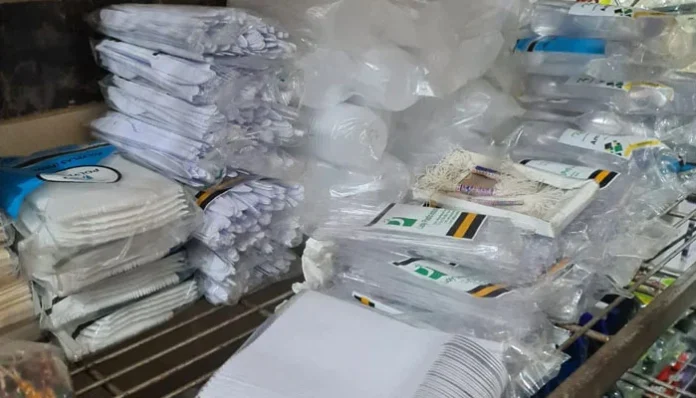The Pakistan Environmental Protection Agency (Pak-EPA) has achieved a notable milestone by converting approximately 1985 kilograms of confiscated single-use polythene bags into environmentally friendly items like green benches and planters. This initiative is part of Pak-EPA’s broader strategy to mitigate the detrimental impacts of plastic on the environment.
In a joint media briefing, Director General Farzana Altaf Shah and Dr. Zaigham Abbas, Director of Labs and National Environmentally Quality Standards (NEQS), provided insights into the agency’s efforts and the severe consequences of plastic pollution.
Shah emphasized the global scale of the issue, with an annual production of 459.75 million tons of plastic globally, accumulating to a staggering 9.5 billion tons until 2019. Pakistan alone contributes 3.3 million tons of plastic waste annually, equivalent to the height of two K2 mountains.
The severity of the plastic crisis prompted 175 nations to adopt a resolution in 2022, aiming to create a binding international agreement to eliminate plastic pollution from source to sea by 2024. In response, Pak-EPA took proactive measures, including a complete ban on polythene bags in Islamabad in 2019 and the development of Single-Use Plastics (Prohibition) Regulations 2023.
The Single-Use Plastics (Prohibition) Regulations 2023 target reducing littering, preventing the entry of carcinogenic and problematic plastic items into the market, and achieving several objectives, such as minimizing adverse impacts on human health and the environment, transitioning to a circular economy, and making waste systems more efficient.
Dr. Zaigham Abbas explained that the enforcement teams of Pak-EPA confiscated 1985 kilograms of polythene bags in Islamabad, which were then transformed into four green benches and four green planters using eco-friendly technology.
This marks Pak-EPA’s initial step into a circular economy for plastic waste. The agency plans to distribute these green benches and planters in public spaces like offices, universities, schools, markets, and parks.
The regulations also outline key features, such as a requirement for single-use plastic beverage containers to contain at least 50% recycled plastic by July 1, 2028.
The “polluter pays” principle is emphasized, placing responsibility on producers, importers, and beverage companies to collect plastic waste. Additionally, record-keeping and data disclosure requirements are established, and awareness campaigns are expected to be initiated. Fines may be imposed by the Pakistan Environmental Protection Agency for violations of these regulations.
The Pak-EPA’s initiative represents a significant step towards addressing the plastic crisis, not only by imposing regulations but also by creatively repurposing confiscated plastic into useful and sustainable items for public spaces. This approach aligns with the global goal of reducing plastic pollution and promoting a more circular and responsible use of plastic materials.


